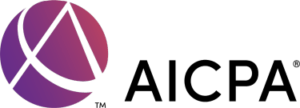To ensure 401(k) plans don’t unfairly prioritize senior executives, the IRS uses an annual test usually called ADP. The ADP test compares the average salary deferral percentages of highly compensated employees (HCEs) to others.
The ADP of HCEs may not exceed that of non-HCE employees by more than 2%. If a 401(k) plan fails testing, corrective action must be taken to preserve the plan’s qualified status. Otherwise, all its assets can become taxable.
ADP testing is performed annually and, itself, adds significant overhead to a business. To avoid the yearly rigmarole and the uncertainty that comes with it, some businesses opt for a Safe Harbor 401(k) plan.
What is a Safe Harbor 401(k)?
A Safe Harbor 401(k) is assured of passing nondiscrimination requirements every year. ADP testing is deemed to pass automatically as long as you elect to use Safe Harbor each year.
There are three types:
Non-Elective Safe Harbor
Eligible employees receive an annual employer contribution equal to 3% of their salary, immediately fully vested, no matter if the employee contributes.
Basic Safe Harbor Match
The employer matches 100% of the first 3% of each employee’s contribution, then 50% of the next 2%. To receive these funds, employees must contribute.
Enhanced Safe Harbor Match
The employer matches 100% of the first 4% of each employee’s contribution. Again, employees must contribute to receive matching funds.
Pros of a Safe Harbor 401(k)
- No annual ADP/ACP nondiscrimination testing
- HCEs don’t have to worry about contribution caps
Without a Safe Harbor 401(k), highly compensated executives and those with a 5% or more stake in the business may find themselves unable to contribute.
Cons of a Safe Harbor 401(k)
The biggest “con” is that a business must make mandatory contributions to employee 401(k) accounts and the money becomes vested immediately.
This can be expensive for a large enterprise. Conversely, a small business may find these contributions more cost-effective than complex yearly ADP tests.
Select the right Safe Harbor 401(k) for you
Even if your business has an existing 401(k) plan, you can choose to switch to a Safe Harbor 401(k) during defined periods each year.
With three options to choose from, there is no “one size fits all” solution. Insight from a service provider that assists with plan design is crucial.
Contact Cassel Plan Audits today for information on auditing your 401(k) plan.





